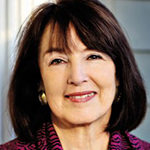CLBB Director of Bioethics Dr. Rebecca Brendel spoke with WBUR’s Morning Edition to talk about the process that occurs when someone is hospitalized for mental health issues. Dr. Brendel, also director of the master’s program in bioethics and an assistant professor of psychiatry at the Harvard Medical School, commented,
“What the evaluators in the emergency room really would be looking for would be symptoms consistent or supporting a risk of harm…and has the individual taken steps toward the plan to actually harm themselves or harm somebody else?”
Listen to the entire segment below, or go to WBUR for more on the interview.


 lty Member
lty Member 
